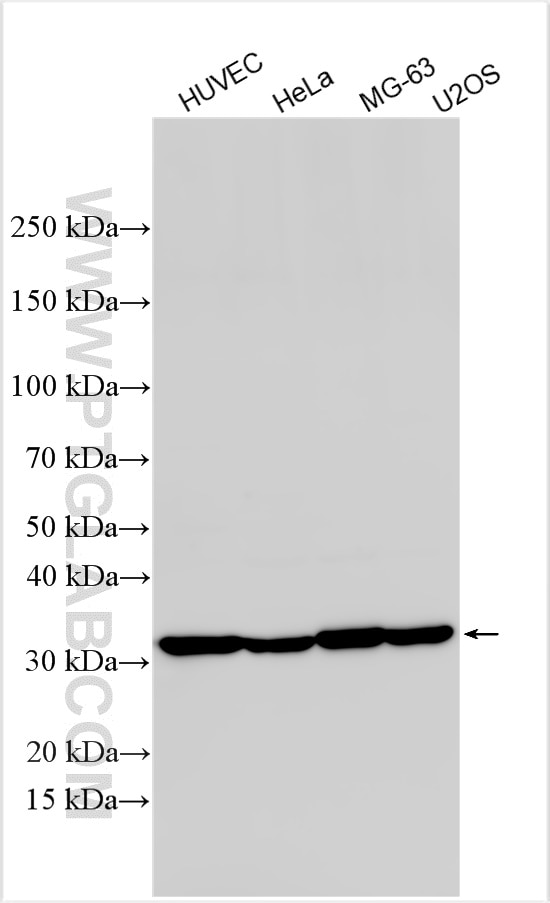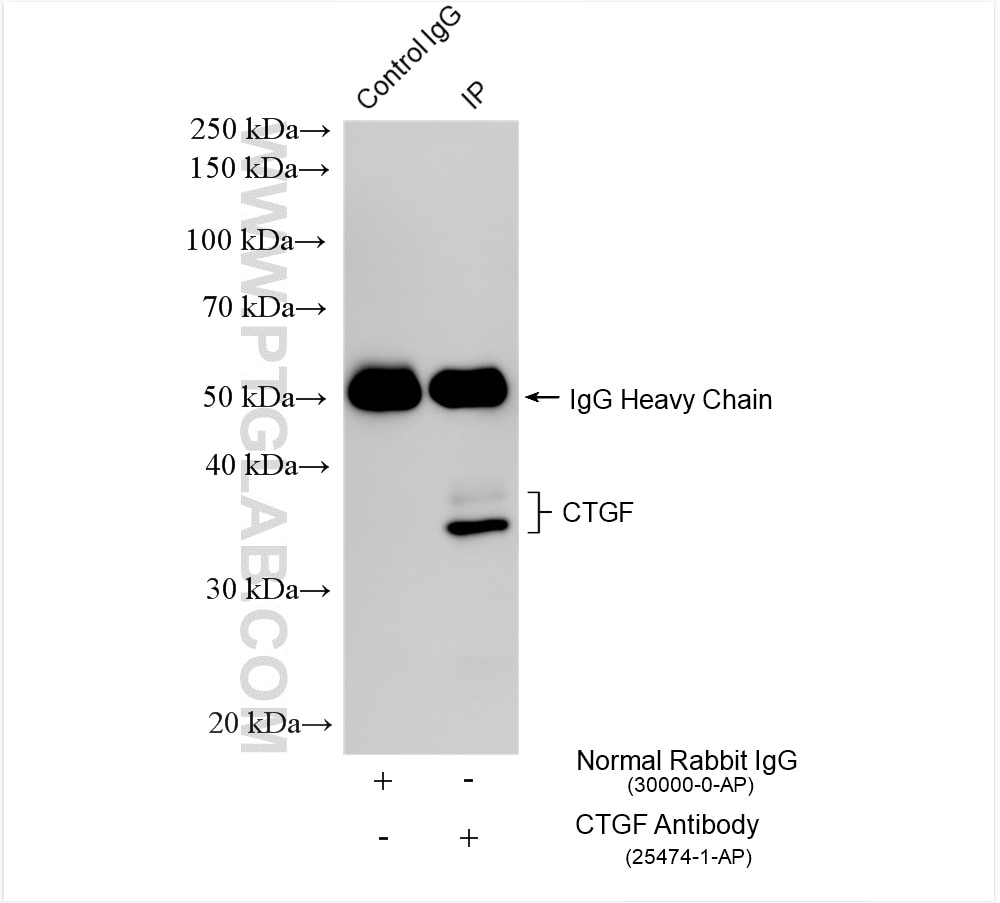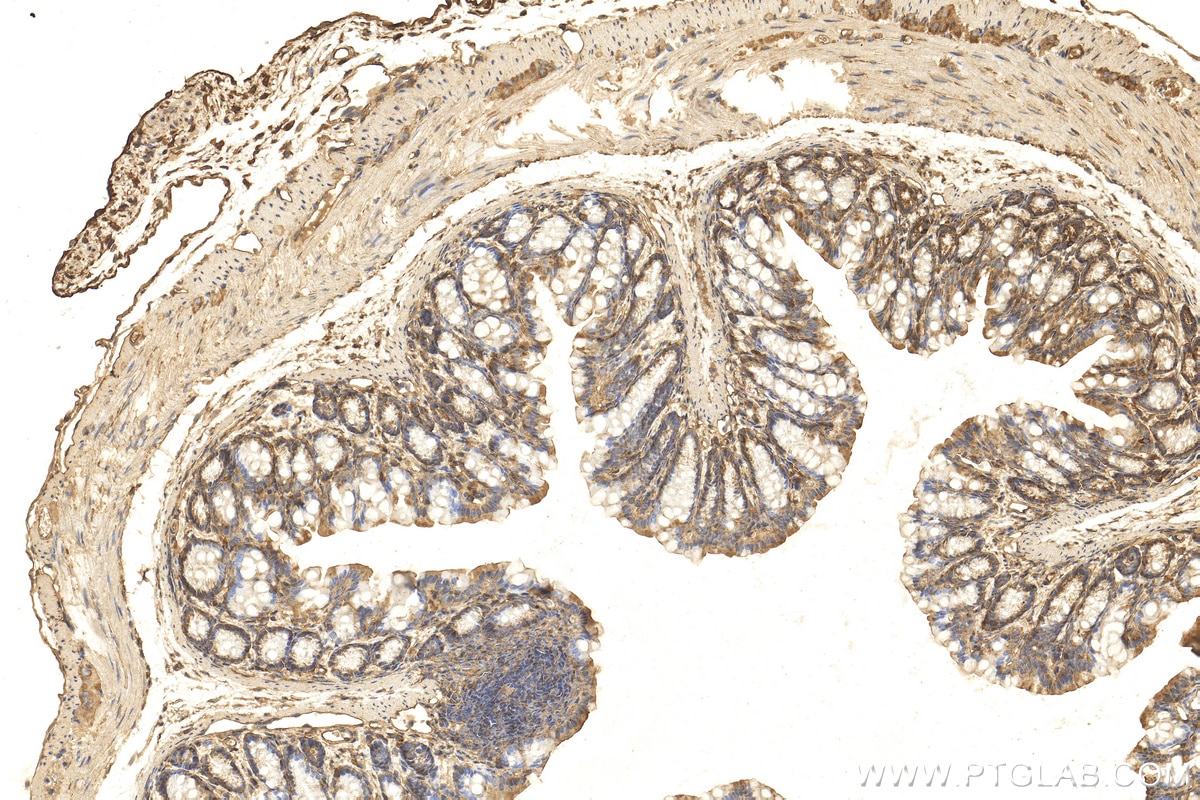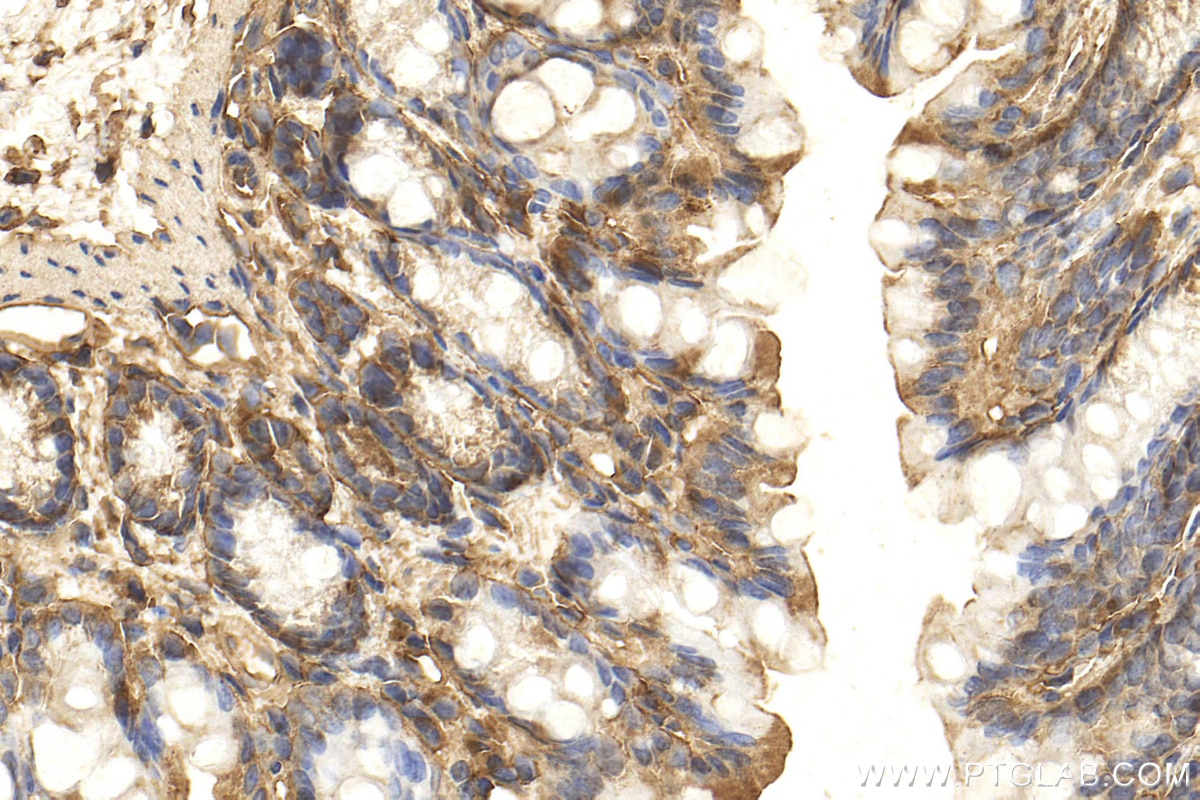Anticorps Polyclonal de lapin anti-CTGF
CTGF Polyclonal Antibody for WB, IHC, IP, ELISA
Hôte / Isotype
Lapin / IgG
Réactivité testée
Humain, souris et plus (4)
Applications
WB, IHC, IF, IP, ELISA
Conjugaison
Non conjugué
N° de cat : 25474-1-AP
Synonymes
Galerie de données de validation
Applications testées
| Résultats positifs en WB | cellules HUVEC, cellules HeLa, cellules U2OS |
| Résultats positifs en IP | cellules HUVEC, |
| Résultats positifs en IHC | tissu de côlon de souris, il est suggéré de démasquer l'antigène avec un tampon de TE buffer pH 9.0; (*) À défaut, 'le démasquage de l'antigène peut être 'effectué avec un tampon citrate pH 6,0. |
Dilution recommandée
| Application | Dilution |
|---|---|
| Western Blot (WB) | WB : 1:1000-1:8000 |
| Immunoprécipitation (IP) | IP : 0.5-4.0 ug for 1.0-3.0 mg of total protein lysate |
| Immunohistochimie (IHC) | IHC : 1:50-1:500 |
| It is recommended that this reagent should be titrated in each testing system to obtain optimal results. | |
| Sample-dependent, check data in validation data gallery | |
Applications publiées
| WB | See 45 publications below |
| IHC | See 5 publications below |
| IF | See 3 publications below |
Informations sur le produit
25474-1-AP cible CTGF dans les applications de WB, IHC, IF, IP, ELISA et montre une réactivité avec des échantillons Humain, souris
| Réactivité | Humain, souris |
| Réactivité citée | rat, canin, Chèvre, Humain, porc, souris |
| Hôte / Isotype | Lapin / IgG |
| Clonalité | Polyclonal |
| Type | Anticorps |
| Immunogène | Peptide |
| Nom complet | connective tissue growth factor |
| Masse moléculaire calculée | 38 kDa |
| Poids moléculaire observé | 35 kDa |
| Numéro d’acquisition GenBank | NM_001901 |
| Symbole du gène | CTGF |
| Identification du gène (NCBI) | 1490 |
| Conjugaison | Non conjugué |
| Forme | Liquide |
| Méthode de purification | Purification par affinité contre l'antigène |
| Tampon de stockage | PBS with 0.02% sodium azide and 50% glycerol |
| Conditions de stockage | Stocker à -20°C. Stable pendant un an après l'expédition. L'aliquotage n'est pas nécessaire pour le stockage à -20oC Les 20ul contiennent 0,1% de BSA. |
Informations générales
CTGF, also known as CCN2, is a member of the CCN family of matricellular proteins. CTGF, a cysteine-rich, matrix-associated, heparin-binding protein, is widely expressed in various human tissues and organs. CTGF has important roles in many biological processes, including cell adhesion, migration, proliferation, angiogenesis, skeletal development, and tissue wound repair, and is critically involved in fibrotic disease and several forms of cancers.
Protocole
| Product Specific Protocols | |
|---|---|
| WB protocol for CTGF antibody 25474-1-AP | Download protocol |
| IHC protocol for CTGF antibody 25474-1-AP | Download protocol |
| IP protocol for CTGF antibody 25474-1-AP | Download protocol |
| Standard Protocols | |
|---|---|
| Click here to view our Standard Protocols |
Publications
| Species | Application | Title |
|---|---|---|
EMBO J MST2 methylation by PRMT5 inhibits Hippo signaling and promotes pancreatic cancer progression | ||
Acta Pharmacol Sin Urolithin A promotes atherosclerotic plaque stability by limiting inflammation and hypercholesteremia in Apolipoprotein E-deficient mice | ||
Oxid Med Cell Longev Cigarette Smoke Exposure Increases Glucose-6-phosphate Dehydrogenase, Autophagy, Fibrosis, and Senescence in Kidney Cells In Vitro and In Vivo. | ||
Front Bioeng Biotechnol Effect of stem cell conditional medium-loading adhesive hydrogel on TGF-β1-induced endometrial stromal cell fibrosis | ||
Eur J Pharmacol Palmatine alleviates cardiac fibrosis by inhibiting fibroblast activation through the STAT3 pathway |





